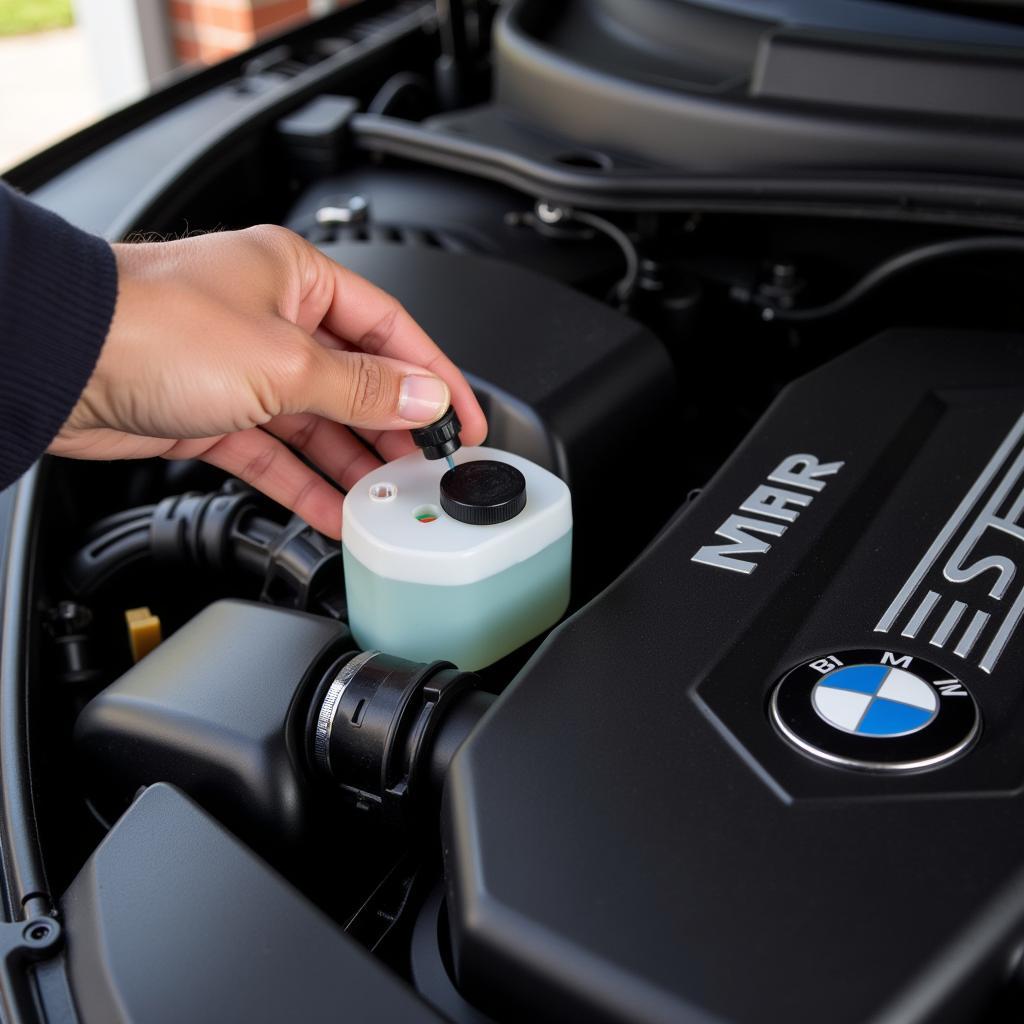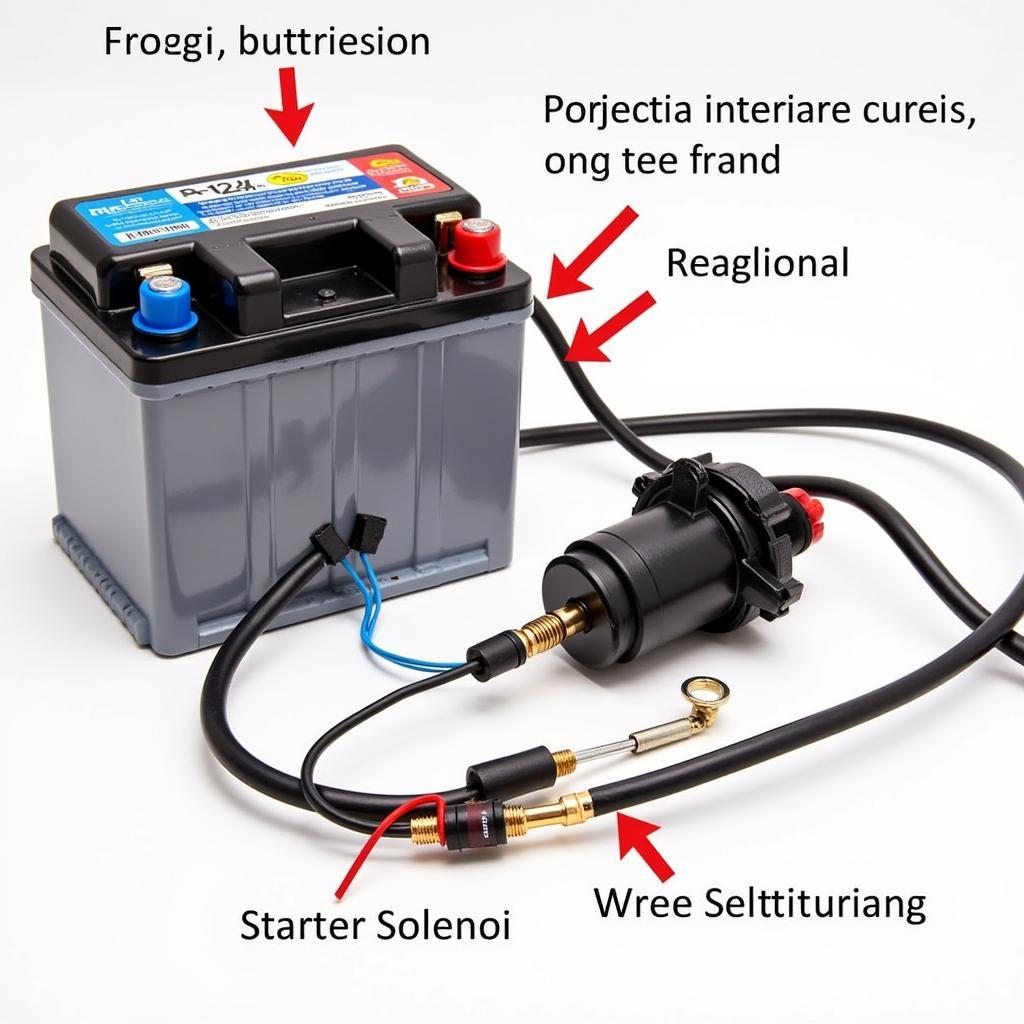The yellow brake warning light on your Toyota Prius can be a cause for concern, but it doesn’t always mean a trip to the mechanic is imminent. This comprehensive guide will delve into the common reasons behind this warning light and provide you with practical steps for diagnosis and potential solutions, empowering you to take control of the situation.
Understanding Your Prius’s Braking System
Before we jump into the reasons behind the yellow brake warning light, it’s helpful to understand the basic components of your Prius’s sophisticated braking system:
- Hydraulic Brakes: This traditional system uses brake fluid to apply pressure to the brake pads, slowing down the wheels.
- Regenerative Braking System: Unique to hybrid and electric vehicles like the Prius, this system captures energy generated during braking and uses it to recharge the battery.
- Electronic Brake Control System: This system utilizes sensors and electronic controls to optimize braking performance and safety features like Anti-lock Braking System (ABS) and Vehicle Stability Control (VSC).
Common Causes of the Yellow Brake Warning Light
When the yellow brake warning light illuminates on your Prius’s dashboard, it’s signaling a potential issue within one or more of these systems. Here are the most frequent culprits:
1. Low Brake Fluid Level
Problem: Brake fluid is the lifeblood of your car’s hydraulic braking system. If the fluid level drops too low, it can significantly reduce braking power, making it crucial to address this immediately.
Diagnosis:
- Check the brake fluid reservoir: Located under the hood, the reservoir has a “MIN” and “MAX” marking. Ensure the fluid level is within this range.
- Inspect for leaks: Look for any signs of fluid leakage around the brake lines, calipers, and the master cylinder.
Solution:
- Add brake fluid: If the level is low but there are no visible leaks, carefully top off the reservoir with the appropriate brake fluid type for your Prius (consult your owner’s manual).
- Address leaks: If you detect a leak, it’s vital to have it repaired by a qualified mechanic immediately. Driving with a brake fluid leak is extremely dangerous.
2. Worn Brake Pads
Problem: Brake pads are designed to wear down over time. When they become too thin, their effectiveness diminishes, and the brake warning light will often activate as a safety precaution.
Diagnosis: While a visual inspection of the brake pads through the wheel spokes can give you an idea of their thickness, it’s best to have a mechanic assess their wear and tear.
Solution: If your brake pads are worn beyond the recommended limit, they need to be replaced. It’s generally recommended to replace both front or both rear pads at the same time, even if only one side appears worn.
3. Malfunctioning Brake Sensor
Problem: Your Prius has sensors that monitor the position and functionality of various brake components. If a sensor malfunctions, it can trigger the warning light, even if there isn’t an actual problem with the braking system.
Diagnosis: A mechanic can use a diagnostic tool to read the error codes stored in your Prius’s computer system. This will pinpoint which sensor is malfunctioning.
Solution: A faulty brake sensor will need to be replaced.
4. Issues with the Regenerative Braking System
Problem: Since your Prius utilizes regenerative braking to recapture energy, any issues with the electric motor, battery, or related components can impact the braking system and trigger the warning light.
Diagnosis: This requires specialized diagnostic equipment and knowledge of hybrid systems. It’s recommended to consult with a mechanic experienced in hybrid vehicle repair.
Solution: Depending on the specific issue, repairs might involve replacing faulty components within the regenerative braking system.
What to Do When the Yellow Brake Warning Light Comes On
- Don’t Panic: While any warning light should be taken seriously, it’s important not to panic.
- Assess Your Surroundings: If possible, safely pull over to a safe location away from traffic.
- Check the Brake Fluid: As a first step, inspect the brake fluid level as described earlier.
- Proceed with Caution: If you feel comfortable driving with extreme caution and the brake fluid level is adequate, you can drive slowly to a mechanic.
- Seek Professional Help: In most cases, it’s best to err on the side of caution and have your Prius towed to a qualified mechanic or dealership for a thorough inspection and diagnosis.
Expert Insights
“I can’t stress enough the importance of having your brakes checked regularly,” says John Miller, a seasoned Toyota Master Technician. “Regular maintenance, including brake fluid flushes and pad replacements, can prevent many of these issues from arising in the first place.”
Conclusion
Ignoring a yellow brake warning light in your Prius can have serious safety implications. By understanding the potential causes and following the recommended steps, you can ensure your braking system is in optimal working order, keeping you safe on the road. Remember, regular maintenance and timely professional attention are key to preventing costly repairs and ensuring the longevity of your Prius’s advanced braking system.



